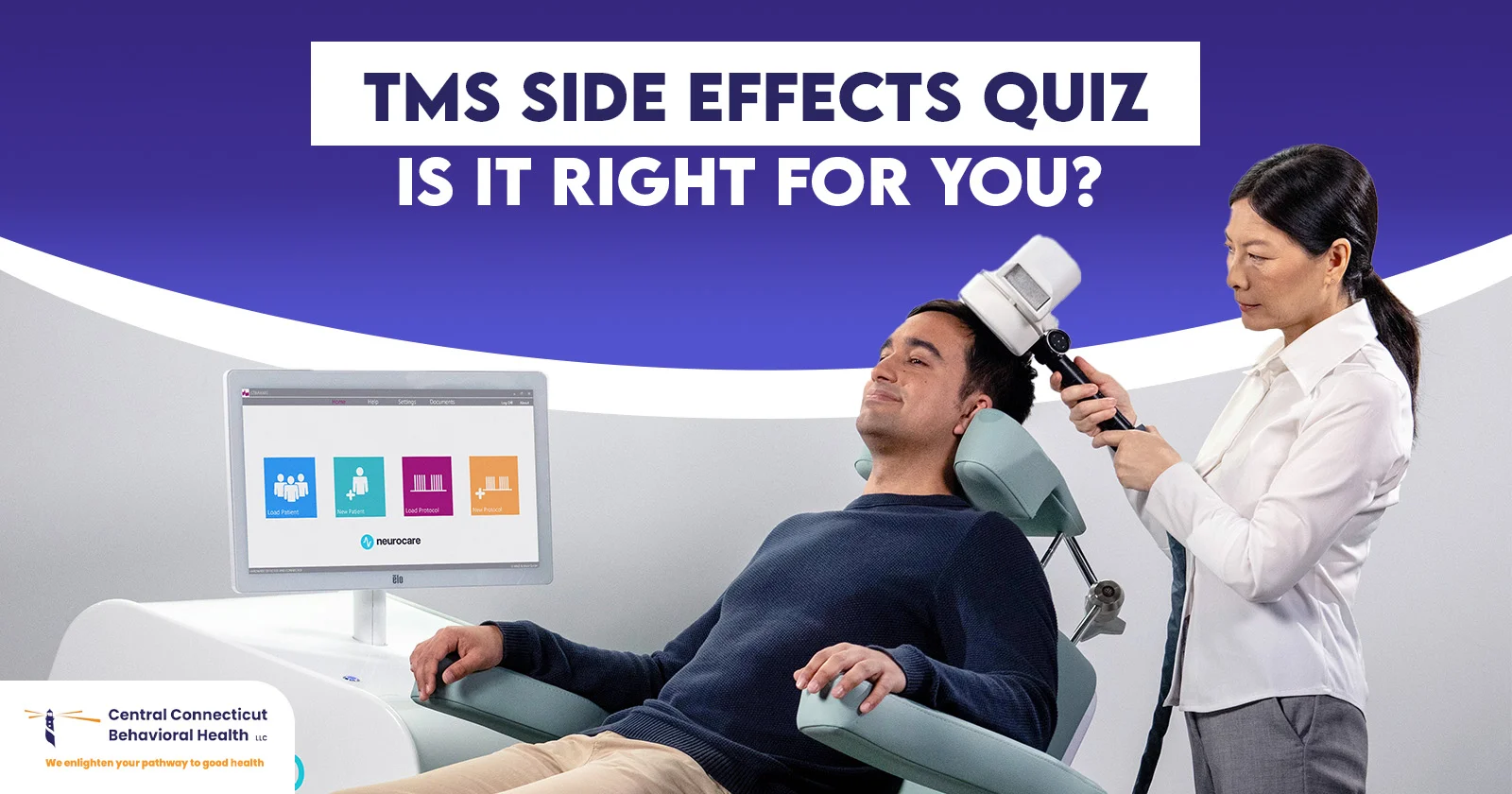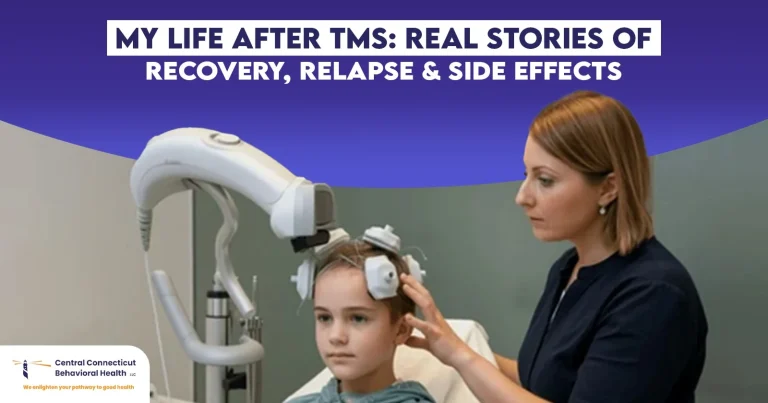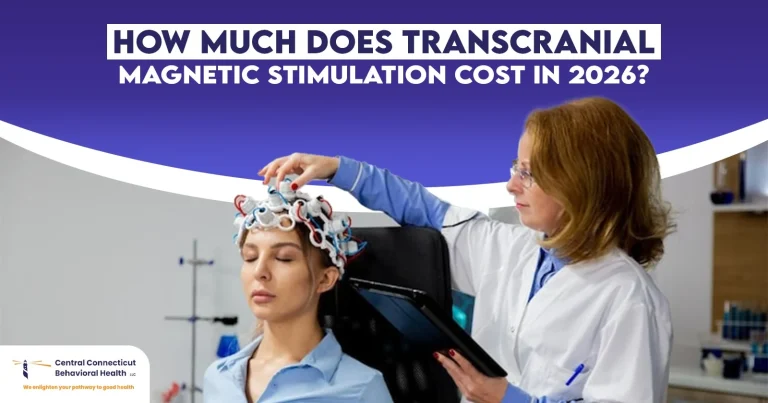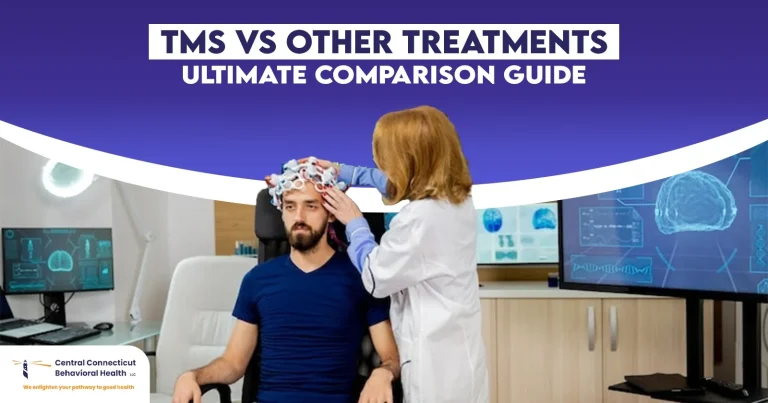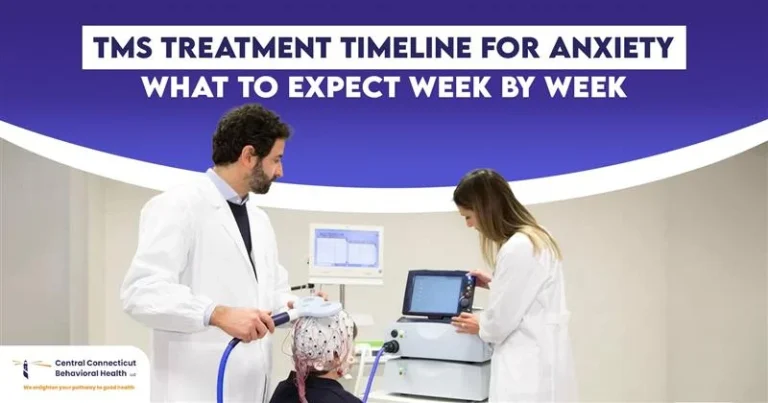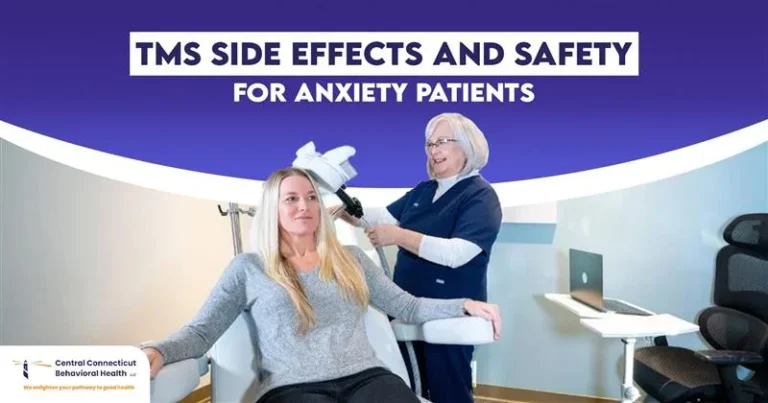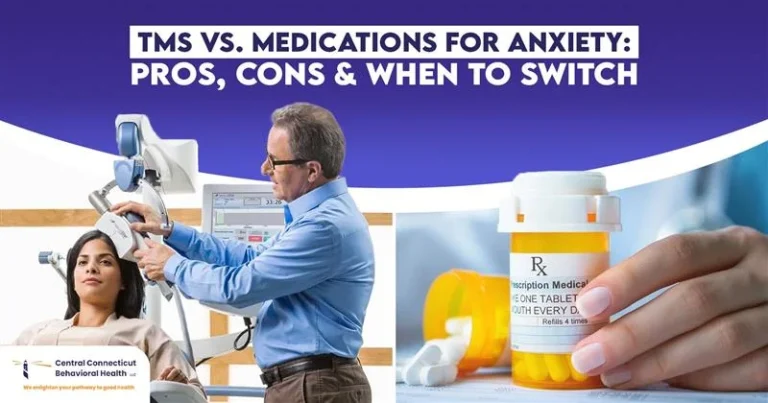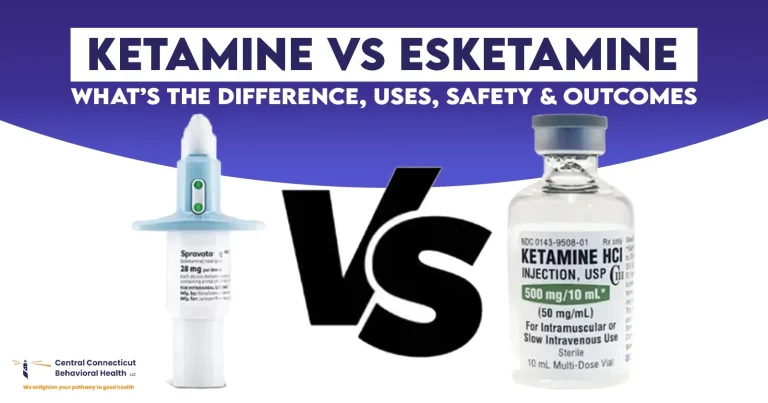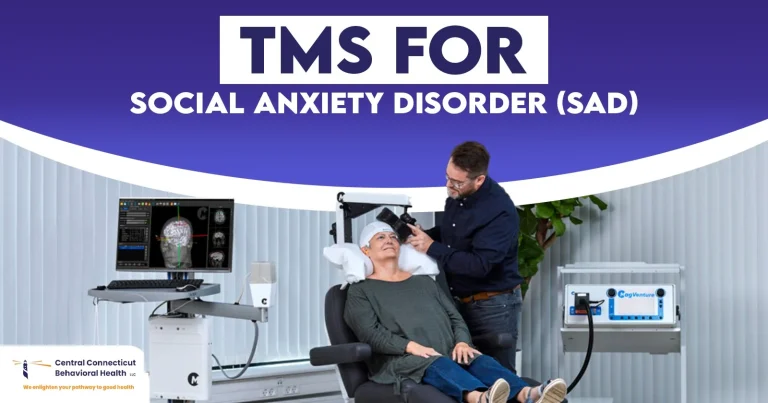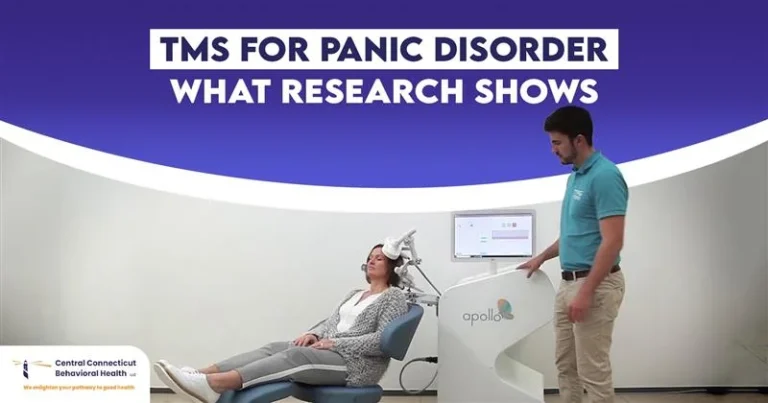Transcranial Magnetic Stimulation (TMS) is a non-invasive therapy approved by FDA that use gentle magnetic pulses to treat depression, anxiety, and certain other mental health conditions. It is often recommended when standard medications have not provided enough relief and have caused uncomfortable side effects.
Patients still worry about TMS side effects. Are they mild or serious? How common are they? Are TMS adverse effects permanent? All of these are normal concerns, and a better understanding of answers will help you to choose best.
At Central Connecticut Behavioral Health, we have created a TMS Side Effects checklist to guide patients through the most common and rare effects of treatment. This blog explains the quiz in detail and offers expert-backed insights from neurologists and psychiatrists.
How TMS Therapy works?
Transcranial magnetic stimulation uses gentle magnetic pulses targeting specific areas of brain that are helpful in improving mood without any need for medicines.
Key facts about TMS:
- Non-invasive: No intervention or anesthesia needed.
- No medication : A reliable option for people not improving with medicines or unable to tolerate side effects.
- Quick recovery: you can drive yourself home and return to normal activities right after each session.
- Proven: 4–6 weeks of treatment gives noticeable results in mood.
TMS is widely considered safe, but knowing potential TMS side effects can help before beginning therapy.
Why a TMS Side Effects Quiz Matters
Patients often ask, “Will I feel side effects, and if so, how strong will they be?” Our self-assessment tools helps you answer that. It uses conditional answers mild, rare, or more noticeable, so you can see how TMS might feel for you.
Benefits of the quiz:
- Helps set realistic expectations
- Reduces fear or uncertainty
- Encourages open discussion with your provider
- Support you to play active role in your treatment
Common TMS Side Effects
TMS side effects are mild, short lived, and go away after first few sessions.
The most common include:
TMS treatment side effects headache → Usually mild and short-lasting. Can be eased with common pain relievers.
Scalp irritation → usually a feeling of light tingling or warm sensation where the coil touches your head.
Facial twitching → you may notice small muscle twitches which fade right after session.
Light-headedness → A short feeling of dizziness, but it usually go away in minutes.
Why they happen
These effects happens as you brain, skin and muscles are responding to magnetic pulses. With time, your body adjusts and symptoms fade with each session.
Rare TMS Side Effects
Although rare, but fee side effects may appear in some patients.
- Seizures: Extremely uncommon affecting fewer than 1 in 30,000 treatments.
- Hearing discomfort: The clicking sound of the machine may bother the ears. If ear protection is not used.
- Emotional changes: A few patients notice anxiety or irritability at first, But these feelings ease after few sessions.
Studies and research showed that transcranial magnetic stimulation side effects are short term and harmless.
TMS Side Effects checklist Quiz: Self-Assessment
Answer these questions to explore your personal tolerance for possible TMS side effects:
-
How do you respond to mild headaches?
- Mild → You adapt quickly; TMS headaches unlikely to affect you.
- Moderate → You may need over-the-counter medication during early sessions.
- Severe → Talk with your doctor before starting treatment.
-
Is there any episode of seizures or epilepsy?
- No → TMS is generally safe.
- Yes → Requires a detailed medical review before starting.
-
Are you sensitive to loud sounds?
- No → TMS clicks shouldn’t bother you.
- Yes → Protective earplugs are essential.
-
Do you often feel anxious when starting new treatments?
- Yes → Temporary mood swings may occur.
- No → You will likely adjust quickly.
-
Do you experience frequent scalp or muscle sensitivity?
- Yes → You may notice tingling more strongly.
- No → Sensations should remain mild.
This quiz is not meant to take place of professional advice, but it helps you to get ready to talk with you provider.
Are TMS Side Effects Permanent?
One of the most common concerns is: “Are TMS side effects permanent?”
The answer is no. The side effects of TMS are temporary. They mostly fades after a few minutes to hours. Mild headaches, scalp discomfort, and tingling sensations disappears as the body gets used to. There is no scientific evidence against damage of brain or memory by TMS.
In fact, research shows that TMS improves focus, memory, and overall mood.
How to Reduce TMS Side Effects
Patients can take few simple steps to make TMS sessions more comfortable:
- Earplugs: The Device produces clicking sounds, using ear plugs reduces discomfort.
- Hydration: staying well hydrated reduce headaches and light-headedness.
- Breaks: feeling anxious or restless, short breaks will help
- Request adjustments → Your provider can lower intensity if the stimulation feels too strong
- Speak up → Let your care team about side effects so they can support you.
Comparison of TMS Side Effects to Medication
Antidepressants can cause weight gain, sexual issues, or feeling tired all day. TMS side effects are mild:
- Localized (limited to scalp or treatment area)
- Short-term
- Easier to manage
This makes TMS an attractive alternative for patients sensitive to medication side effects
The Role of Experts in TMS Safety
At Central Connecticut Behavioral Health, TMS therapy is delivered with input from both neurologists and psychiatrists. This collaboration ensures:
- Careful screening before treatment
- Placement of the coil in correct place for maximum safety
- Continuous monitoring of patient
- The safety and well-being is always the top priority.
Conclusion
TMS therapy is a safe and clinically proven alternative for those facing anxiety or depression after trying medications. Mild TMS side effects may appear, but fades quickly and easily manageable.
The TMS Side Effects Quiz is a helpful way tool to get ready for treatment and start a honest conversations with your provider. With expert care at Central Connecticut Behavioral Health, patients can begin TMS with confidence, knowing risks are low and benefits are life-changing.
FAQs: TMS Side Effects
Q1: what ate common are TMS side effects?
mild headaches, scalp irritation commonly present during the first sessions.
Q2: Are TMS side effects permanent?
No. Side effects are temporary and fade as the brain adjusts.
Q3: Is there any difference in rTMS side effects from standard TMS?
No. rTMS side effects are nearly identical to regular TMS and are generally mild.
Q4: List the rarest side effect of TMS?
Seizures are the rarest, occurring in less than 0.1% of cases.
Q5: Can we reduce TMS side effects?
Yes. Use of ear plugs, keeping hydration, and coil adjustment in place can help minimize discomfort.
Q6: Is there any affect of TMS on memory?
Studies show no negative impact. But in some cases there is reported improvement in cognitive function.


